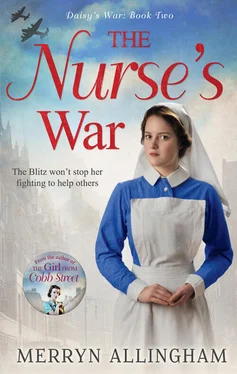Somehow she managed to find her voice, hoarse and hardly recognisable. ‘Is it really you? I don’t understand.’ How ridiculous that sounded. The understatement of all time.
The memory was so vivid that every one of her senses added a layer to the image. She could still hear the shouts of her captors, feel the hot rain soaking her dress, see the raging waters closing on her husband’s head. How then could he be here? At one violent stroke, the past she had tamed had broken its bonds and was showering her with its fragments. She began to shake uncontrollably and was forced to lean against the massive door for support.
‘It’s me all right.’
‘But how …?’ The question was dredged out of her.
‘I escaped, that’s how. Pure luck.’
‘But how?’
‘My shirt snagged on one of those damned festival floats—would you believe? But it stopped me from going under. I was pulled down the river for miles—you know how fierce the water was. Then the float got pushed into the bank and lodged there.’
‘And you weren’t injured?’
‘A broken arm, that’s all, and it mended pretty quickly. People came from the village to see what had drifted their way and found me instead of the goddess they’d expected. They looked after me until I was fit to leave.’
‘You had an astonishing escape.’ How trite she sounded, but in the face of such extraordinary fortune, what more was there to say? Except there was more. The shock was slowly receding and the questions had begun.
‘But once you were well, once your arm had mended, why didn’t you go back to Jasirapur?’ Why didn’t you face the crime you committed? her inner voice accused. ‘And the—the incident—happened well over a year ago. Where have you been since then? And how did you find me?’
The moon was still in hiding and she couldn’t see his face but she could imagine the irritated expression it wore. Her questions had always annoyed him. He left most of them dangling in the air, choosing only to answer the last.
‘I used my head, Daisy, that’s how. I didn’t know if you were in London, but I thought it worth looking for you.’ What he really meant, she thought, was that he hadn’t known whether she was alive or dead, but that was something he wasn’t going to say.
‘If you had returned to London,’ he continued smoothly, ‘it was possible you’d gone back to Bridges to work. So I called at their perfume counter. You weren’t there, but I had another piece of good fortune. One of the girls you used to work with had seen you. Quite recently too. Her sister was a patient in St Bart’s for a while. She’d just had an operation and when this girl visited, she was sure she’d seen you there. She said you were wearing a nurse’s uniform. So I’ve been hanging around the hospital for a few days hoping to catch you. But no sign. I thought my luck must have run out at last. Tonight when I saw you leave, I’d almost given up.’
‘I’m not always at St Bart’s. Sometimes I have to travel to Hill End. It’s in the countryside, near St Albans. Patients are evacuated there as soon as they’re stable enough.’ She felt stupid—why was she bothering to explain? ‘But what girl at Bridges? And where are you living?’
A chilly breeze sprung out of nowhere, snaking around the corners of the square, and whipping up the edges of her cape. Across the grassed space, the leaves rustled angrily. For an instant, she felt a shadow pass across her vision and blinked in surprise. It made her shiver slightly. She was sure that Gerald had seen it, too, for he shifted uneasily from foot to foot, and his voice when he spoke held the barely contained impatience she had come to know so well.
‘We can’t talk now but I need your help. We must meet—soon—but somewhere else.’ He reached out and gripped her by the arm. It was such a fierce tug that she let out a small cry of pain.
He stepped back and his tone was more conciliatory. ‘I’m sorry. I didn’t mean to hurt but I have to see you. Here—’ and he pushed a piece of paper into her hand. ‘Send your message to this address. It’s a corner shop, one of those that sells just about everything. They’ve agreed to hold post for me.’
Even in her confused state, she found herself pondering why he couldn’t simply give her his address. It would be difficult for her to get to the shop as nursing staff were allowed only a short break during their working day. But she was given no chance to refuse.
‘Don’t let me down, Daisy. Remember, you’re still my wife.’
It was almost a threat, at best emotional blackmail, and from a man who had wronged her dreadfully. She should tell him to go away and never return, leave her to whatever peace she’d found. But old loyalties were not so easily subdued.
‘I’m not sure that I can help.’ At the very least, she must dampen his hopes.
‘You’ve got to. I’ve no one else. My parents are dead. The house they were living in is a pile of rubble, like most of the East End.’
Had what happened in India robbed him of his memory? Where was the story he’d been at pains to impress on her, that his parents had died years ago in the Somerset manor house that was their family home? Years ago, not now, not in wartime, and not in a miserable tenement in the poorest part of the city. But she wouldn’t remind him of the lies he’d told. It was too complicated.
‘I don’t know how I can help,’ she repeated. ‘I’ve no money. I’m a nurse in training and my pay is barely sufficient to buy essentials. I live board free, here in the Nurses’ Home.’
But he wasn’t listening. His own tale, his own needs, were too urgent. He grabbed hold of her arm again. ‘I’m a deserter, Daisy, that’s what it’s come down to. Do you understand what that means? I could be picked up at any time and locked up for years. Do you want to see me go to prison? I have to get away—to a neutral country where they can’t touch me. I have to have papers and you’re my only hope. Send me a message tomorrow with a time and meeting place.’
He turned to go and she was left standing helplessly on the threshhold. At the bottom of the flight of steps, he turned to face her again. ‘By the way, I’m not Gerald Mortimer any more—for obvious reasons. Send your message to Jack Minns. That’s who I’ve become.’
And who you always were, she thought. But he had gone, stealing noiselessly into the soft thickness of the night. She bent down and moved her hand over the stone step trying to locate the dropped key. At last her fingers fastened around it and, with a shaking hand, she managed to slot the key back into the lock and let herself in.
Her room was small and bare, containing nothing more than a narrow bed, a chest of drawers and a desk that had also to serve as a dressing table. But it was her room and hers alone and she was fortunate to have it. Most of the student nurses were forced to share. The Home was always a noisy and boisterous place, reverberating with laughter, with chatter, with music from radios played too loudly. Tonight someone at the end of the corridor was banging on the bathroom door in an effort to gain entrance, someone else was calling to her friend, asking to borrow a hairbrush, a girl two doors down was pleading for quiet to study. Daisy cherished the privacy of her room and this evening it was beyond the price of rubies.
The day had been disastrous. The buses had been late leaving for Hill End and thrown everything else out of kilter. Patients were still in beds they should have left hours before. And then a sudden influx of people suffering severe influenza had made the last few hours chaotic. Barts had been designated a casualty clearing station and most of the medical staff had been transferred to the country hospital. She’d felt honoured to be one of the small number who remained in London to deal with casualties and medical emergencies. But honoured or not, it was gruelling work. For most of last year, London had endured constant bombing and she had seen some terrible injuries. Legs smashed, backs full of broken glass, crushed hands and feet. Injuries that required dedicated nursing alongside the unremitting duties of every student: making beds, emptying bedpans, sluicing foul linen, rolling bandages for the dressings trolley. It was a relentless round of physical labour. And tonight, just when she’d barely been able to keep herself upright from fatigue, this blow had fallen on her. An unbelievable blow.
Читать дальше












